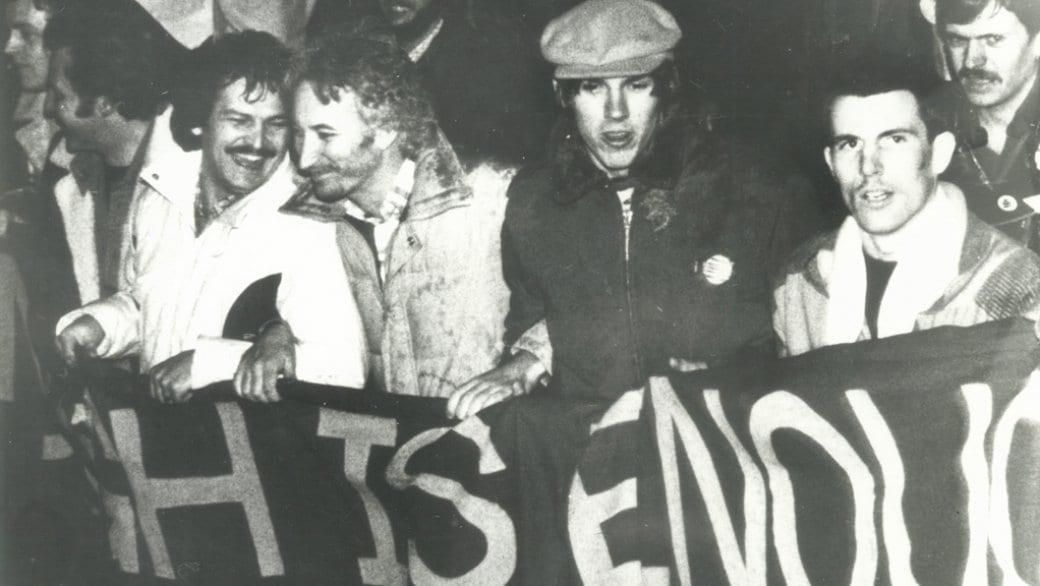Pride Toronto wants the city to think about Operation Soap the same way New Yorkers think about Stonewall.
“In New York, they’re very good about this. Everybody knows that Stonewall is what created and gave the shape of what Pride is now,” says Mathieu Chantelois, executive director of Pride Toronto.
During Pride month in June 2016, Pride Toronto will be finding a number of ways to incorporate the history of the 1981 bathhouse raids and uprising into the programming.
“In Toronto I still think that we have a lot of talking to do, a lot of education for everybody to understand that the raids are our Stonewall,” says Chantelois.
On June 7, Pride Toronto, in conjunction with The 519 and the Bonham Centre for Sexual Diversity Studies, will host a human rights panel that will feature people who were arrested during the raids, activists who fought back and historians.
Pride Toronto has also gathered a number of images from 1981 and will be distributing them to local artists as inspiration.
“We asked them to get inspired by these images,” Chantelois says.
The plan is to display the artwork during the parade itself.
“People will be dancing and at one point they will turn around and they will see the protests, they will see the violence,” he says. “And for us that’s a really good way to give people a reminder of what happened, but also to remind people that dancing in the streets is political.”
People who were involved in the events of 1981 will be given an honoured place during the parade.
“They are the heroes of our community, they are the soldiers of their generation,” he says.
Pride will also have a press conference at Oasis Aqualounge, formerly Club Baths, one of the four bathhouses that was raided in 1981.
Chantelois says that it’s an opportunity to force the mainstream press to highlight the history of the raids and how it’s relevant today.
“I’ve worked for 15 years as a journalist and I know that when you do a conference in a place like this, the reporters will not be able to ignore the fact that they are in a bathhouse,” he says.
Fatima Mechtab, marketing director for Oasis Aqualounge, says she’s excited to be able to focus on the history of the bathhouse raids during Pride.
“I like a good party just like everyone else, but there’s a reason why we have this party and there’s a reason why we’re celebrating freedom,” she says.
Mechtab recalls that she attended a Pussy Palace event the year before the Toronto Police raided the event in 2000.
“Even though I personally wasn’t at the raid, it was alarming to hear that as a queer gay woman who was in that space,” she says.
Chantelois says that the history of these sorts of raids, and of 1981 in particular, still resonates today.
“We still don’t know who ordered these raids, the police never even wanted an answer for the question,” he says. “And we never even had an apology from the police for what happened.”
He was, however, pleased to see that Mayor John Tory commemorated the anniversary on Twitter.
“Dark day in our history that mobilized LGBTQ community to fight for their deserved human rights,” Tory wrote.
But Chantelois hopes that Pride’s focus on Operation Soap will help cement it as a transformational moment in the city’s history.
“In Toronto I still think that we have a lot of talking to do, a lot of education for everybody to understand that the raids are our Stonewall,” he says.

 Why you can trust Xtra
Why you can trust Xtra


